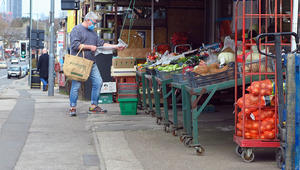Residents want local authorities to act on climate change and to be part of the solution, new research shows
Research released today funded by PCAN (the Place-Based Climate Action Network) and carried out in partnership with Abundance Investment finds that residents want local authorities to act on climate change and are attracted by the prospect of being part of a collective solution.









